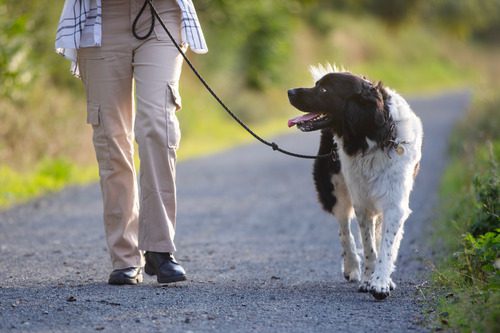Dog Bitten by a Snake: Next Steps
When your dog is bitten by a snake, it can be a terrifying experience. Understanding the appropriate steps to take immediately following a snake bite can make a significant difference in your dog’s recovery. At Caring Hearts Animal Hospital in Matthews, NC, we want to ensure you have all the information you need to act swiftly and effectively. Call us at 704-893-2799 if you find yourself in this situation.

Identifying a Snake Bite on Your Dog
Recognizing the symptoms of a snake bite is crucial for getting your dog the help they need. Symptoms can vary based on the type of snake and the severity of the bite. Common signs include:
- Swelling
- Puncture wounds
- Pain
- Unusual behavior
- Lethargy
- Diarrhea
- Difficulty Breathing
- Collapse
If you notice any of these symptoms, it’s essential to seek veterinary care immediately.
Types of Venomous Snakes in North Carolina
North Carolina is home to several venomous snakes, including copperheads, cottonmouths, and rattlesnakes. Copperheads are the most common and are responsible for the majority of snake bites in the area. Understanding which snakes are prevalent in your region can help you better assess the risk and identify the type of snake involved in a bite.
Immediate Actions to Take After a Snake Bite
Keep Your Dog Calm and Restrained
After a snake bite, it’s crucial to keep your dog calm and still. Movement can increase the spread of venom through the bloodstream. If possible, carry your dog to the car instead of letting them walk. Restraining your dog gently but firmly can help prevent further agitation and reduce the circulation of venom.
Avoid Home Remedies
While it may be tempting to administer first aid at home, such as applying ice or attempting to suck out the venom, these actions can often do more harm than good. It’s important to avoid home remedies and focus on getting your dog to a veterinary professional as quickly as possible. Time is of the essence in treating snake bites.
Seeking Veterinary Care
As soon as your dog is bitten by a snake, call your veterinarian or an emergency animal hospital. Inform them of the situation so they can prepare for your arrival. Providing details about the bite and any symptoms your dog is experiencing can help the veterinary team get ready to deliver prompt care.
What to Expect at the Veterinary Clinic
Upon arrival at the veterinary clinic, your dog will undergo a thorough examination. The veterinarian will likely administer antivenom if available and appropriate for the type of snake bite. Other treatments may include intravenous fluids, pain management, and antibiotics to prevent secondary infections. The goal is to stabilize your dog and mitigate the effects of the venom.
Preventing Snake Bites in the Future
- Keep Grass Mowed: Maintain short grass to reduce hiding spots for snakes.
- Trim Bushes and Shrubs: Regularly trim foliage in your yard to eliminate potential hiding spots.
- Remove Debris: Clear piles of debris, rocks, and wood where snakes might hide from your property.
- Seal Fence Gaps: Ensure there are no gaps in fences to prevent snakes from entering.
- Use Snake Repellents: Consider using snake repellents around the perimeter of your property.
- Inspect Yard: Check for snakes before letting your dog outside.
- Teach Commands: Train your dog to recognize and obey commands like “leave it” or “stay.”
- Use Snake Replicas: Utilize replicas during training to help your dog identify snakes.
- Professional Training: Consider working with a professional trainer specializing in snake avoidance.
- Reinforce Training: Regularly reinforce training to ensure your dog retains and applies the knowledge.
- Leash Walks: Always keep your dog on a leash during walks, especially in areas known for snakes.
- Stay on Trails: Stick to well-trodden paths and avoid tall grass or dense underbrush.
- Regular Inspections: Inspect your yard regularly for signs of snake activity, such as shed skins or tracks.
- Be Vigilant During Snake Season: Supervise your dog closely during warmer months when snakes are more active.
Understanding the Importance of Prompt Action
The Role of Quick Intervention in Recovery
Quick intervention is critical in the recovery process following a snake bite. The sooner your dog receives veterinary care, the better their chances of a full recovery. Delaying treatment can lead to more severe symptoms and complications. Always prioritize immediate action when a snake bite occurs.
Long-Term Care and Monitoring
After initial treatment, your dog may require ongoing care and monitoring. Follow your veterinarian’s instructions closely, and attend all follow-up appointments. Monitor your dog for any signs of complications or lingering symptoms, and keep your veterinarian informed of their progress.
Caring for Your Dog After a Snake Bite
A snake bite is a serious and potentially life-threatening event for your dog. By recognizing the symptoms, taking immediate action, and seeking prompt veterinary care, you can greatly improve your dog’s chances of recovery. At Caring Hearts Animal Hospital in Matthews, NC, we’re here to support you and your pet through every step of the process. If your dog is bitten by a snake, call us immediately at 704-893-2799. Your pet’s health and safety are our priority.
Recent Posts
About Us
At Caring Hearts Animal Hospital, we’re not your typical veterinarian in Matthews, NC. We have been welcoming dogs and cats from Mint Hill, Indian Trail, and Union County for over 15 years, and our team is comprised of pet owners, too–so we appreciate the bond you share with your companions!
